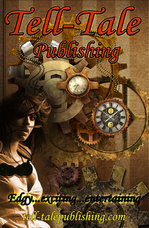|
Writers have talked about Goal, Motivation and Conflict since bards were poets and stories were memorized. By no surprise these are universal elements within a H/H's mythical adventure. The Hero/Heroine starts out in the real world, is motivated to seek a high stakes prize which requires going on a chaotic adventure, and finally overcomes the conflict, achieves his/her goal and returns to share their prize or boon with the original world. Sounds like a cover blurb, doesn't it? For good reason. Beginning: In the beginning of H/H quests, the protagonist lives in the real world (whatever that is according to the creator of worlds). The author establishes a setting and situates the H/H within it. Then the main character receives a call to adventure (motivation). They usually say no. This is when a mentor or guardian appears to make them an offer they can't refuse, usually to help solve a sudden crisis. The conflict revealed may be the H/H against themselves, nature, or against a villain. The H/H must decide whether or not to answer that call (to pursue a goal). This is the opening of an adventure tale, be it screenplay, mystery, thriller, fantasy, paranormal, YA, or romance, etc. The Jonah, Luke or Alice who answers the call steps over the threshold (into the belly of the whale, across the universe, or down the rabbit hole) and sets forth on a hero/heroine’s journey. It is a journey that may be literal, psychological, or both. Middle: The events and character development are the stops along that journey, and though they may not be linear or strictly chronological any good storyteller's goal is to make them interrelated and consistant, thus logical. For example, if you are writing about a psycho, the fact that they do not think or behave in what is considered to be a logical or rational manner would seem realistic, right? To a lesser degree, most "real" people are sometimes confused, have a hard time making up their mind, or even change their mind--usually because another event or circumstance is revealed to motivate this change. These are the plot twists of a story. The hero/heroine can make mistakes, but sooner or later they must learn from these mistakes in order to grow as a person and this is character development. The H/H may have helpers and fellow travelers that are encountered on their journey (supporting characters), but the main characters will be the protagonist (hero/heroine) and the antagonist (villain). It is their search for the holy grail, their encounters with the Green Knight that make up the universal themes that resonate within the reader's psyche. But before the story can end there must be a climax, a point where the hero/heroine comes to a pivotal moment of personal and significant importance. This is a flash forward when the action takes a definitive turn for the worst. It is the point where the reader should be holding their breath in anticipation, rooting for the hero/heroine to succeed even though it seems they have just been fitted with a toe tag. They recover of course, hoist themselves back up that cliff face, at the last seemingly irresolvable instant. End: The conclusion is not the second at which the H/H resolves the conflict and achieves their goal, at least not precisely. The hero/heroine of an adventure tale follow their bliss into a dark, mysterious cave. For the story to end, the H/H must be reborn as the normal everyday firefighter, balerina, detective, surgeon, vampire or even serial killer they were in the beginning. Protagonists must do this in order for them to fulfill the obligation they agreed to when accepting the call to adventure: returning with the prize. This chalice provides the psychological closure, the moral realized, the maturity evident or at least implied to the reader, who also lives in this universal "real" world. The awarded trophy can be a murder solved, an injustice righted, a true love found, or an emotional trauma overcome. Whatever. It can be the fact that the moral dilemma has no one right solution. The point now is the sharing of the boon. The reader must realize the life lesson, the universal theme that promted the storyteller to write. Only after the circular plot has completed a full cycle is the story over. The end. Recap of what you know and why you love it. A hero/heroine’s journey: 1) The real world 2) The call to adventure 3) Turning down the call (not yet ready or convinced) 4) The mentor/guide (an offer they can't refuse) 5) Accepting the call (crossing the threshold) 6) Encountering trials and enemies (character interaction) 7) The hero/heroine’s journey (events and circumstances that influence the protagonist’s goals) 8) The climax (transformation, character development) 9) Obtaining the boon 10) The journey home 11) Rebirth 12) Sharing the boon with mankind
1 Comment
|
Elizabeth Fortin, CEOArchives
May 2011
Categories
All
|
 RSS Feed
RSS Feed
